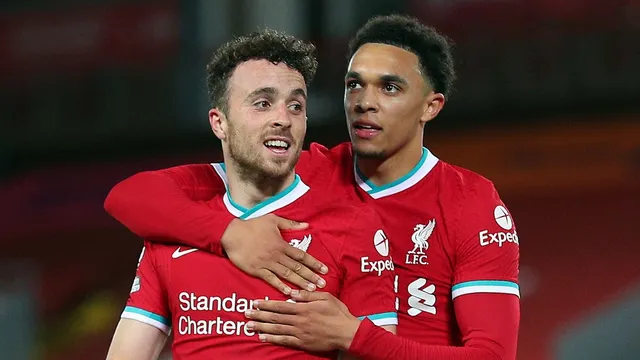
Diogo Jota and brother die in tragic car crash in Spain
2025-07-05 23:44- Diogo Jota and his brother were involved in a car crash in Zamora, Spain.
- The accident occurred early on July 3, 2025, and was reportedly caused by a tire blowout.
- The football community mourns the loss of these two talented players, highlighting their contributions to the sport.
Express your sentiment!
Insights
In a tragic event that has shocked the football community, Diogo Jota, a prominent player for Liverpool F.C. and the Portuguese national team, died in a car crash in Zamora, Spain, along with his brother, Andre Silva. The accident occurred early on Thursday morning, July 3, 2025, when their vehicle reportedly veered off the road and caught fire. At the time of the accident, both men were traveling together in Jota's car. Authorities indicated that there were no other vehicles involved in the incident, suggesting that the crash may have been caused by a tire blowout. Jota and Silva, two accomplished footballers, were both of Portuguese nationality, with Jota being 28 years old and Silva being 25. Silva was also a player, associated with lower division clubs in Portugal, which added to the community's grief over this loss. The Portuguese Football Federation expressed its deep sorrow over the deaths, stating that both individuals were valued not only for their sporting abilities but also for their character. Diogo Jota had recently celebrated a significant personal milestone, having married his partner Rute Cardoso just 11 days before the crash. This event was marked by a joyous Instagram post where he reflected on the unforgettable nature of their wedding day. The couple had three children together, heightening the tragedy of his passing. Tributes to Diogo Jota have poured in from across the football world, highlighting his achievements and positive impact on and off the field. Jota's performances in winning major trophies with Liverpool, including the Premier League title, have left an indelible mark on the club's history. The scale of the tragedy has prompted calls for a minute's silence during upcoming matches, highlighting the profound loss felt by fans, teammates, and the broader football fraternity. In his short yet impactful career, Jota built a legacy that will endure beyond his untimely death.
Contexts
The sudden and tragic death of Jota has left an undeniable impact on Liverpool FC, shaking the club's community and fanbase to its core. Jota, known for his remarkable skills and contributions to the team, was instrumental in Liverpool's recent successes. His dynamic playing style and ability to score crucial goals made him a fan favorite and a key player in their pursuit of domestic and European glory. The emotional weight of his passing extends far beyond the pitch, as it marks not only the loss of a talented athlete but also a beloved teammate and friend. The shockwaves from this loss are felt throughout Liverpool, with players, staff, and supporters grappling with the grief of losing someone who was a vital part of their journey together. In terms of the team's performance, Jota's absence is likely to affect Liverpool's dynamics both on and off the field. His unique ability to read the game and work in tandem with other players created scoring opportunities and bolstered the team's attacking capabilities. Liverpool management and coaching staff now face the daunting challenge of finding a way to fill the void left by Jota. This could necessitate a shift in tactics or the integration of younger, less experienced players who may not yet match his level of skill or game intellect. The loss of a key player often requires readjustments that could take time to settle, impacting the club's performance in the immediate future. Moreover, Jota's death ignites a larger conversation about mental health and the support systems in place for players. The pressure of professional sports can often lead to intense emotional and psychological strife, and the loss of a teammate can exacerbate these stresses. Clubs are challenged to provide adequate support for their players and staff during such trying times, prompting discussions about enhancing mental health resources and creating stronger community bonds within the team. This tragedy could serve as a catalyst for change in how the club approaches mental health, potentially leading to improved protocols that support the well-being of all involved. Finally, the impact of Jota's death on Liverpool FC transcends the immediate grief felt by those who knew him or have followed his career. It can potentially shape how the club is perceived both in the media and among fans. There could be a focus not only on honoring Jota’s legacy through tributes and memorials but also in considering how his story can inspire positive changes within the sport. How Liverpool FC responds to this tragedy, both in terms of tributes and changes to its approach to player welfare, could define the club’s values for years to come. Supporting each other in times of loss, while striving to uphold Jota’s memory on and off the pitch, will undoubtedly strengthen Liverpool FC as a resilient football community.